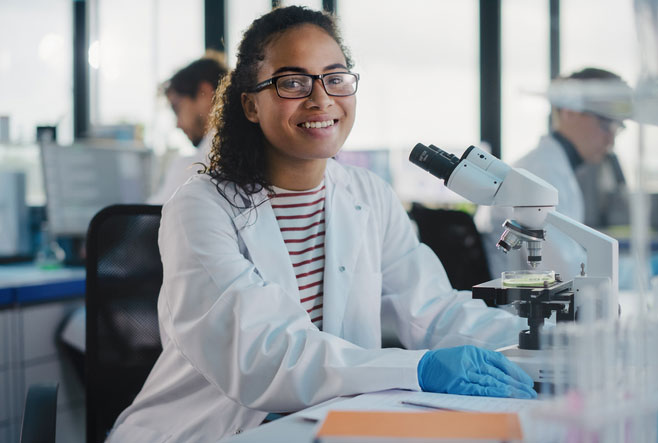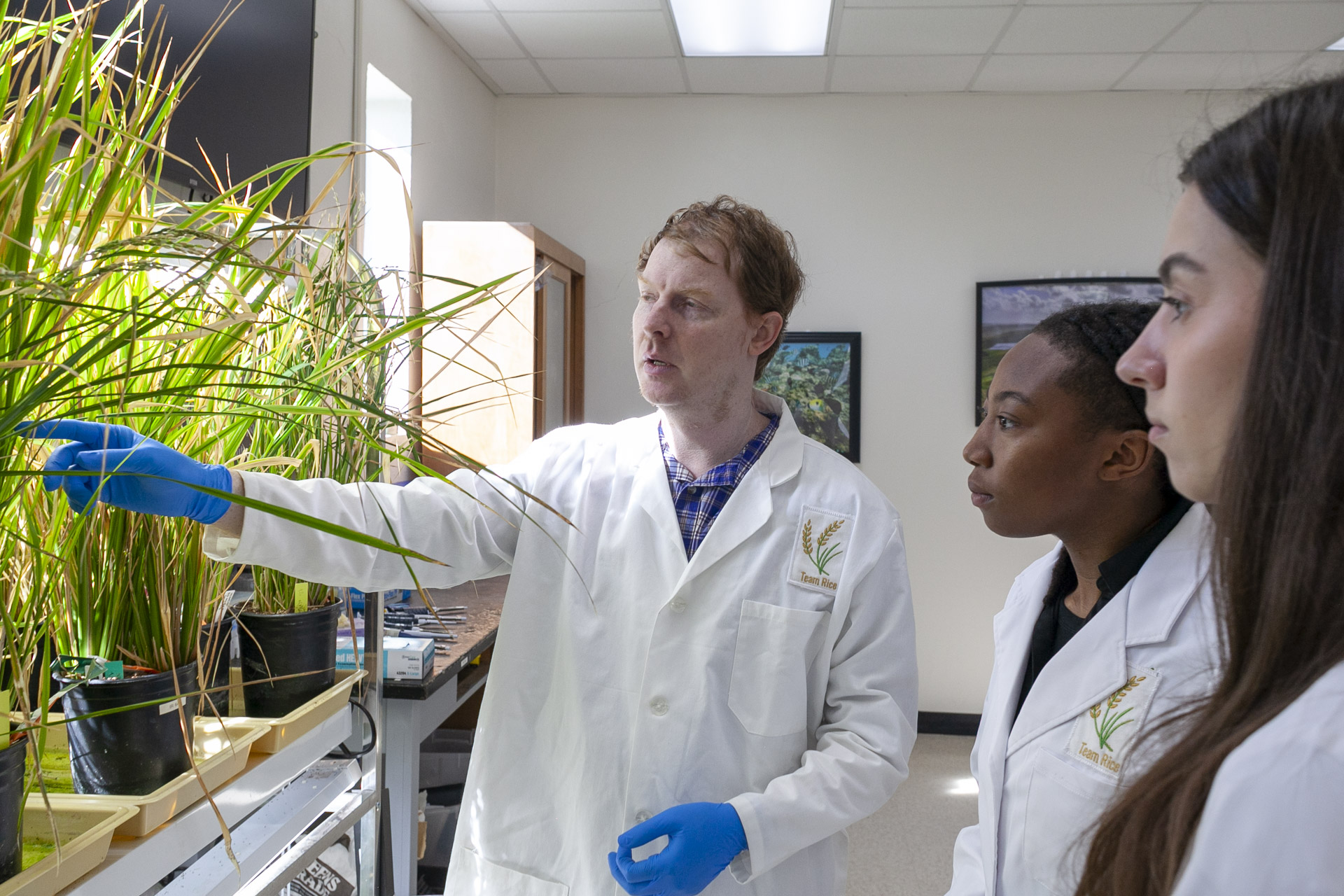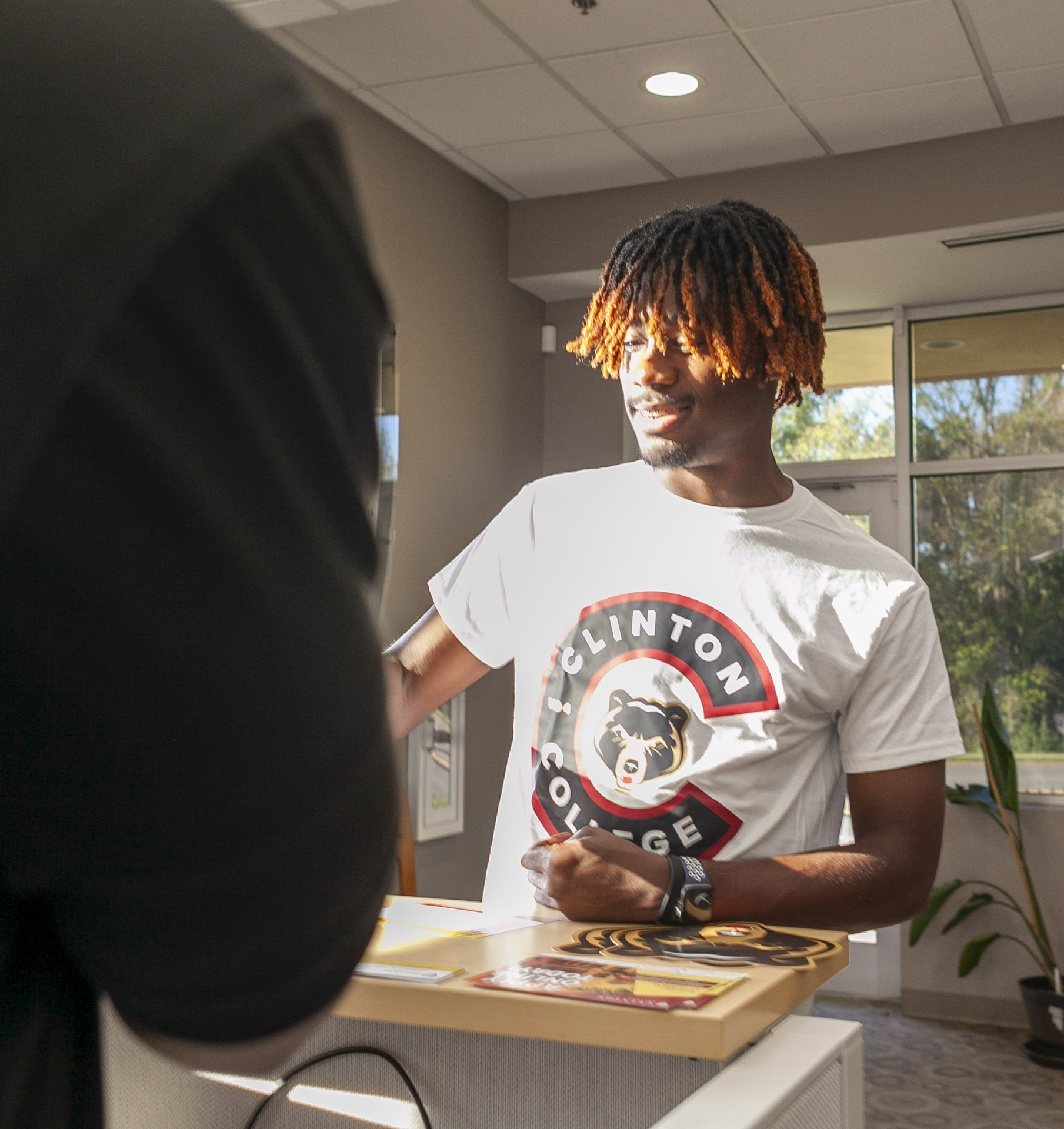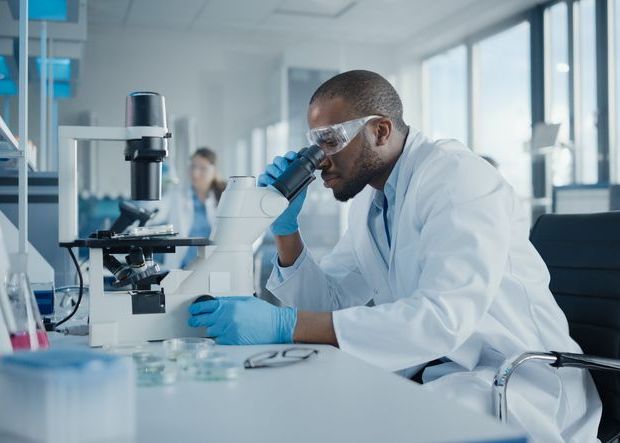
Program Mission
The Clinton College Bachelors Program in Biology is committed to preparing biology majors for challenges associated with the biological sciences in the 21st century. The mission of the BS program is to facilitate in its students a stronger foundation in the physical sciences, mathematics, and interdisciplinary problem-solving skills. Students will be prepared to meet the prerequisite requirements to enter the various health professions ranging from medicine, dentistry, veterinary medicine, podiatry, pharmacy, optometry, both physical and occupational therapy, physician assistant, and other allied health professions. Students are also prepared to enter programs in forensic science, microbiology, zoology, conservation and environmental science, biotechnology, food and drug Inspection, and laboratory technology.
Student Learning Outcomes (SLOs)
The Bachelor of Science program in Biology aligns with the Clinton College mission elements of promoting academic achievement through its coursework leading to student learning outcomes in conceptual knowledge and applied skills to be developed in all science courses and labs. The mission elements of promoting moral and spiritual development, fostering leadership qualities, and encouraging students to be good citizens are emphasized throughout the program
Content Knowledge: Students will demonstrate knowledge of major concepts, theoretical principles, and research/experimental findings in science.
Critical Thinking: Students will demonstrate the skills necessary to correctly design, safely implement, and accurately record, analyze, and present the results of laboratory experiments.
Problem Solving: Students will apply scientific knowledge from two disciplines to propose a solution for a problem they have investigated, using ethical reasoning, analytical reasoning, and quantitative skills.
Analysis and Application of Scientific Information: Students will demonstrate the skills and disposition necessary to investigate a problem through the lenses of two scientific disciplines, using ethical reasoning, analytical reasoning, and quantitative skills.

Degree Requirements (120 hours)
This listing of requirements is for information purposes as of the dating of this catalog. Part One of this bachelor’s degree has the same requirements as the A.S. in Natural Science. Part Two is restricted to students admitted to the bachelor’s degree in Biology and having a class standing of junior or senior.
Total 60 Hours
General Education Requirements (31 total hours)
Includes BIO 103: General Biology I
Major Requirements (29 total hours)
MAT 220: Pre-Calculus
BIO 210: Anatomy & Physiology I
CHE 101: General Chemistry I
MAT 221: Calculus I
CHE 102: General Chemistry II
BIO 202: Introduction to Zoology
MAT 222: Calculus II
BIO 211: Anatomy & Physiology II
Total 60 Hours
General Education Requirements (4 total hours)
Major Requirements (56 total hours)
BIO 201: Introduction to Botany
BIO 300: Introduction to Genetics
BIO 301: Organic Chemistry I
BIO 302: Microbiology
BIO 304: Organic Chemistry II
BIO 305: Ecology
BIO 310: Seminar in Biology
BIO 402: Biochemistry
BIO 403: Biostatistics
BIO 405: Biotechnology
BIO 442: Introduction to Cell and Molecular Biology
BIO 450: Biology Capstone
PHY 400: General Physics I
PHY 401: General Physics

Career Options
These are just a few of the careers you could start with a degree in Biology!

Healthcare
The study of Biology is the basis for becoming a medical doctor. It’s also useful towards being a physical therapist or other health care related professional.

Scientist
Have you ever thought of being a Biologist, Ecologist, or Research Scientist? The field of Biology has many careers in government, nonprofit, and private sector scientists both applied and research based.

Educator
Do you love to teach? The study of Biology would be a basis for teaching science at the High School level or the College level.
